Potential Supervisors from School of Film and TV Arts
Identifying a potential supervisor is required before submitting an application.
For students applying for an existing funded project, the principal supervisor will be the owner of the project and you should contact the principal supervisor to discuss the funding opportunity.
For students applying with your own project, either for scholarship or a self-funded studentship, you should always first identify and contact a potential supervisor whose research interest aligns with yours.
The following is the potential supervisor list from the School of Film and TV Arts:
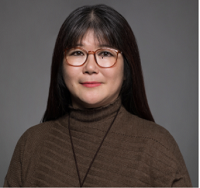 Li-Chuan Evelyn Mai 麦莉娟
Li-Chuan Evelyn Mai 麦莉娟Professor, PhD
Research interests: TV studies, media or emerging media studies, media management, Cultural and Creative Industry Studies, Film and media viewer studies
 Stephen Andriano-Moore
Stephen Andriano-MooreAssistant Professor, PhD
Research interests: Film and Media Studies, Film/Media Industries Studies, Film History, Production Culture, Consumption, Representation, Textual Analysis, Semiotics, Narratives, Discourse, CDA, Ethnography
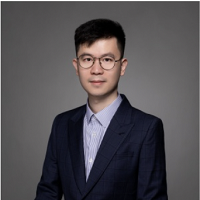 Cheng Fang 方程
Cheng Fang 方程Assistant Professor, MFA
Research interests: Virtual Production, Film history, Motion Capture
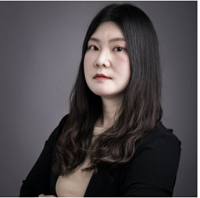 Fang Liu 刘芳
Fang Liu 刘芳Assistant Professor, MFA
Research interests: Virtual Reality, Game Development, Installation Arts, Cultural and Creative Industries
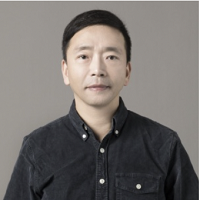 Bing Li 李冰
Bing Li 李冰
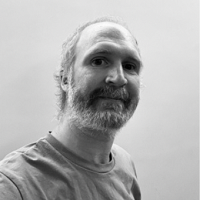 David Strang
David StrangAssistant Professor, MA
Research interests: Software and computing cultures, Critical media theory, psychogeography, hacking, Glitch
 Karolina Pawlik
Karolina PawlikAssistant Professor, PhD
Research interests: Culture and Media, Digital Transformation, Anthropology, History of Graphic Design, Urban Lighting, Mediatized City, Traditional Culture and VR
 Kaisi (Tracy) WANG 王凯思
Kaisi (Tracy) WANG 王凯思Lecturer of Practice, MA
Research interests: Culture and Media, Sociology, Documentary Study
 Qian Zhuang 庄茜
Qian Zhuang 庄茜Assistant Professor, MFA
Research interests: Film study, media study
 Richard Corneliss
Richard CornelissAssistant Professor, MFA
Research interests: Experimental Film, Documentary, Interactive Media
 Yijun Guo 郭轶君
Yijun Guo 郭轶君Assistant Professor, Master
Research interests: TV production, digital compositing, game development
 Yang Liu 刘洋
Yang Liu 刘洋Lecturer of Practice, MFA
Research interests: Immersive Environmental Design/ Character Design
 Yu Sheng 盛誉
Yu Sheng 盛誉Assistant Professor, MFA
Research interests: Motion design and UI/UX theory
 Yiqing Virginia Yang 杨逸清
Yiqing Virginia Yang 杨逸清Lecturer, PhD
Research interests: Contemporary Visual Art, New Materialism, Semiotics, Feminist Theories
 Yibin Yu 余一宾
Yibin Yu 余一宾Assistant Professor of Practice, MFA
Research interests: Documentary, Directing, Storytelling
More information about supervisors from the School of Film and TV Arts
How To Apply
We accept PhD application all year round. The start date of the programme is normally the first day of March, June, September, or December.
To ensure that you will be able to register on your intended date, please submit your application with all the required documentation through the online application system by the deadline outlined below for each entry.
| Entry Point | Start Date | Application deadline |
| September entry | 1 September | 30 June |
| December entry | 1 December | 30 September |
| March entry | 1 March | 15 December of the previous year |
| June entry | 1 June | 31 March |
More information about the applications
Scholarship
The scholarship application is open only to those applying for a full-time doctoral programme.
1. Apply for a scholarship for a funded PhD project:
You can apply for a predefined PhD project which has received funds from the University or external funding bodies. The research topic and supervisory team for these projects have already been established.
There is no specific application deadline for a project as it will remain open until the position is filled. The start date of a PhD programme is usually the first day of March, June, September, or December. You can visit the Postgraduate Research Scholarships Page for information about the specific PhD projects available or to contact potential supervisors to discuss funding opportunities.
2. Apply for a postgraduate research scholarship with your own project
Each academic year includes two application rounds for PhD candidates’ proposed projects.
| Application Founds | Application deadline | Release of results |
| Firts Round | 17:00CST(UTC+8),15 October | End of December |
| Second Round | 17:00CST(UTC+8),15 April | Early July |
More information about the scholarship





The School of Film and TV Arts at Xi’an Jiaotong-Liverpool University is now open for PhD candidates of English, Culture and Communication. Ph.D. research tends to be industry orientated and includes the following fields: film, TV, digital media arts, interactive media, new media or emerging media and culture, media and technology, cultural computing, entertainment industries, film and media operations, management or market, cultural and creative industries, media consumption, audience or viewer research, etc.
The following is a brief introduction to PhD English, Culture and Communication, the supervisor’s research interests, application and scholarship:
English, Culture and Communication
The PhD in English, Culture and Communication aims to help candidates produce academic results that contribute to the discipline and wider communities. We equip our students with theories and skills, provide academic support, and link them with industry, society and the globe.
Ph.D. students at School of Film and TV Arts will become independent researchers in areas including film, TV, digital media arts, arts and technology, emerging media, media or film and culture, entertainment industries, media and communication and cultural and creative industries, etc.
The programme will be managed through collaboration between Xi’an Jiaotong-Liverpool University and the University of Liverpool. Upon successful completion of the programme, you will receive a degree from the University of Liverpool, which is recognised by China’s Ministry of Education.
Pursuing a full-time PhD typically involves three years of conducting research and one year of writing a thesis, supported by subject-specific and general skills training and development. A full-time PhD student must submit their thesis within four years (or six years for part-time PhD students).
scroll for more info
More information about PhD English, Culture and Communication